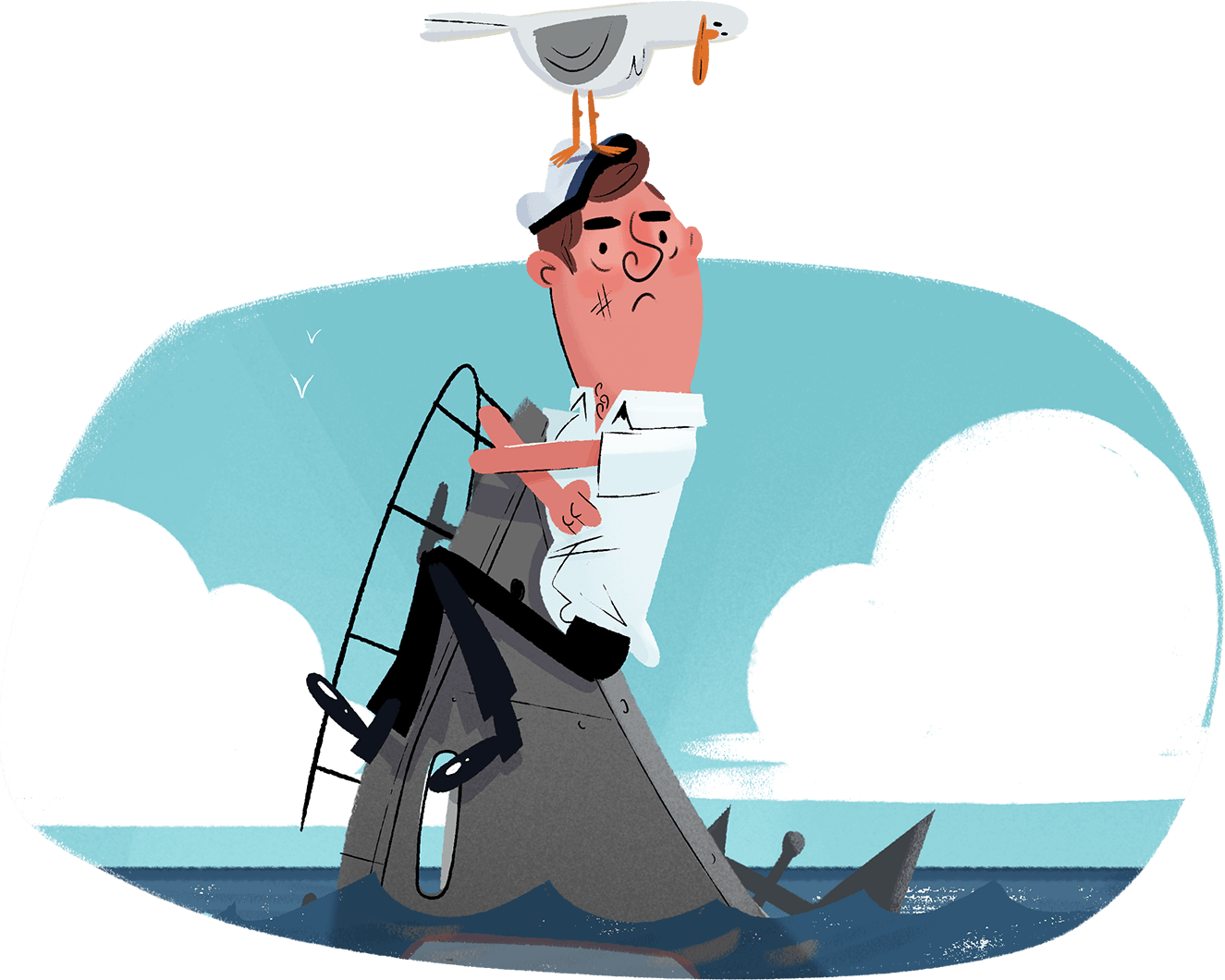 Illustration by Bart Browne
Illustration by Bart Browne
Iwas 7 years old when I decided I did not want to be a leader. At the time my reading consisted solely of comic books about aliens, and while the stories were different, they all shared certain commonalities. One was the way these intergalactic visitors looked—misshapen, oval-headed, with multiple limbs, tentacle-like antennae and glowing red eyes. The second—and this was the problem—was that, upon landing in some farmer’s corn field, they would always emerge and say, “Take me to your leader.” Always. It happened in every story, so I knew it must be true. And I decided right then that, while I enjoyed the thrill of being scared by these malevolent creatures, I was not going to be the person who had to entertain them for the weekend.
If I needed any more convincing, there was the high school history lecture about some famous naval battle in which the teacher happened to mention how maritime tradition dictates that the captain always goes down with his ship. I raised my hand and asked, “The captain is the leader, right?” Hearing my question answered in the affirmative, I thought: Well, that does it. No leadership for me.
Please understand: I am not disparaging leadership. We need leaders. Humans crave the reassurance that someone is in charge. More than that, we really need to blame somebody when things go wrong. Leaders courageously assume this role. Leaders are willing to do what 99.9 percent of humanity is not: make decisions and take responsibility for them. I personally can’t think of a worse way to spend my day.
If I have any problem with leadership, it is the issue of good leaders versus bad ones. How do the very best and the very worst somehow attain the same level of power? Mahatma Gandhi, Abraham Lincoln, Winston Churchill, Joan of Arc—great leaders all. Attila the Hun, Genghis Khan, Vlad the Impaler—not so much. What’s the difference? I think it’s those attributes commonly referred to as “leadership qualities.” Apparently, if you have them they are self-evident and easily recognized, causing people to follow you without being asked. On the other hand, if you don’t have the qualities that cause people to follow you willingly, you have to make them obey. Vlad the Impaler was particularly effective in this regard. His famous speech beginning “Follow me, or I’ll skewer you on a stick” doesn’t have quite the same ring as “Four score and seven years ago,” but the effect is equally compelling.
“Leaders are willing to do what 99.9 percent of humanity is not: make decisions and take responsibility for them.”
Where do these leadership qualities come from? Shakespeare gives us a possible answer with the oft-quoted line from Twelfth Night: “Some are born great, some achieve greatness, and some have greatness thrust upon ’em.” You might put England’s Prince Charles in the first category. Through simple accident of birth he possesses the DNA of kings and is thus assumed to be innately qualified to govern. Now, whether greatness truly runs in his veins remains to be seen, given his astoundingly robust 92-year-old mother’s reluctance to pass him the crown. But one thing’s for sure: He’s got a great shot at longevity.
Then there are those who achieve greatness, sometimes quite unintentionally. New Zealand’s Sir Edmund Hillary is considered great for being the first man, along with his Nepalese Sherpa mountaineer Tenzing Norgay, to climb Mount Everest. But Hillary wasn’t really concerned with greatness, as evidenced by the entry in Norgay’s diary for May 29, 1953: A hard day’s climb, made even harder by this whiner Hillary. In addition to fighting ice, cold and wind, I have to listen to him saying, ‘Maybe this wasn’t such a great idea.’
My deepest sympathies go to those who have greatness “thrust upon them.” I see this as the ultimate instance of being in the wrong place at the wrong time. You’re going along minding your own business, and history taps you on the shoulder and says, “We need greatness. You’re it!” The ancient Egyptian architect Imhotep comes to mind. He was the first guy who was told he had to build this great new idea called a pyramid—and the pharaoh was hoping to see something in a couple of months. Nothing like an impatient monarch to get the greatness juices flowing.
John Cadley is a former advertising copywriter, freelance writer, and musician living in Fayetteville, New York. Learn more at www.cadleys.com.



 Previous
Previous
 Previous Article
Previous Article